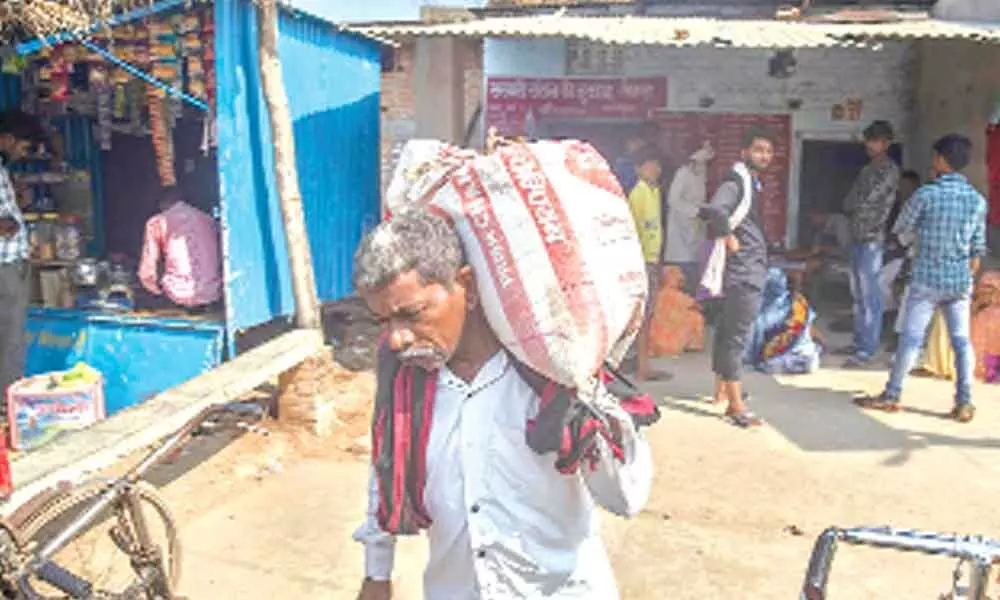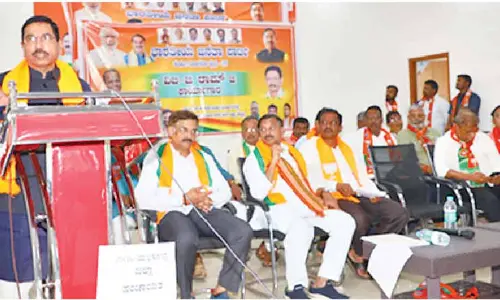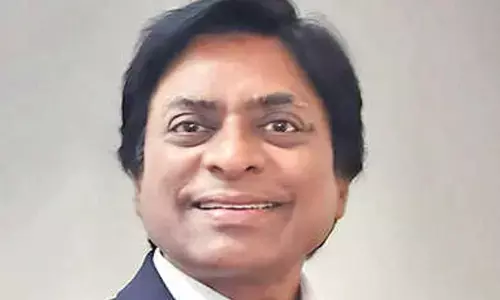Lack of access to healthcare pushing people into poverty

Lack of access to healthcare pushing people into poverty
Govt needs to bring people under the ambit of health coverage to save them from debilitating financial shock
The Co-Covid world has been a sphere of tremendous learning, realizations and reassessments. The pandemic highlighted the flaws in existing regimes of healthcare and while the world has braced to make financial and infrastructural corrections, unexplored alternatives remain.
Healthcare remains beset by class divides and large donors and contributions are predominantly invested in ensuring demonstrable material donations and infrastructural additions, instead of creating a sustainable health regime that benefits everyone in the long run.
It is often elided that what the world needs is food, shelter and livelihood support as most people after treatment end up losing jobs and significant amounts of money in treatment which makes a post-treatment life unsustainable.
Livelihood approaches, a subset of health studies, focus on determinants like material and social resources and activities needed to gain and sustain a living under conditions of economic hardship. As a team of scholars including Brigit Obrist write, "not only possession, but mobilization of household and community assets is a critical factor influencing people's access to health care and other health-related services.
Livelihood assets comprise human capital (local knowledge, education, skills), social capital (social networks and affiliations), natural capital (land, water, and livestock), physical capital (infrastructure, equipment, and means of transport) and financial capital (cash and credit)". All of these factors are indispensable parts of public health and raise pertinent concerns about the state of affairs in the country and the world.
The coronavirus pandemic hit vulnerable and underserved populations hard all across the globe - the socioeconomically weak sections of society were beset by adversities that threatened their very access to life itself, making availing sophisticated health relief including hospitalizations and intensive care admissions, a far cry.
In a general study conducted by BMC Public Health, during the Covid-19 lockdowns in India, 83 per cent of the participants reported difficulty in accessing healthcare, 17 per cent faced difficulties in accessing medicines, 59 per cent reported loss of income and 38 per cent lost jobs.
In such circumstances of dispossession and loss, access and availability of health services is unimaginable and thus, it is incumbent upon us to reassess our commitment to healthcare and livelihood security and take substantial steps in the right direction.
To begin with, it is necessary to see how existing regimes of healthcare deepen inequality in the first place. The National Survey Office of the Ministry of Statistics and Programme Implementation in 2019 reported that only about 10 per cent of the poorest one-fifth of Indians in rural – 10.2 per cent – and urban India – 9.8 per cent – had any form of private or government health insurance. Health costs, thus, push poor people to extremes of precarity.
Scroll.in reports how in 2011-12, out-of-pocket health expenses drove 55 million Indians into poverty and around 38 million Indians were impoverished by expenditure on medicines alone. Therefore, there is a need to provide financial support as health protections to the poor.
This will include insuring huge chunks of the Indian population and bringing them under the ambit of health coverage. With big costs being taken care of, a health emergency no longer will translate to a debilitating financial shock.
On a related and larger note, it is essential to understand how healthcare is not sutured away from socioeconomic realities and takes place in a context. Accordingly, the larger social context has to be taken care of to ensure that healthcare becomes what it intends to be. Poverty, gender inequality, income disparity, digital divides and a host of related issues thus have to be dealt with to enable and bolster public health.
This would, at a policy level, require us to think of health as connected to other social determinants and allocate resources similarly.
For instance, as Live mint reports, in the early 2000s, the Thai government launched Universal Health Coverage (UHC) scheme for the informal sector covering 70 per cent of Thailand's 70 million people and this UHC push was wisely matched by structural reforms.
This led to stellar outcomes, with Thailand's health indicators strongly improving. Similar measures must be asked for in India and across the global scale.
Technology also has to be deployed for this mission and national and communal databases have to be built to take account of standards of living while imagining public health. More and strategic digitization and study will thus be instrumental in providing universal healthcare to sustainable livelihoods, and in ensuring that insecure and vulnerable lives are brought into the ambit of protection and empowerment.
On the whole, it is time to shift gears and stop looking at health as a spectacle to be cherished. Instead, it must be realized for everyone and that would require thorough efforts to raise standards of living and provide everyone with sustainable basic necessities. To this end, the scope is vast and with judicious endeavour, universal health can truly be accomplished.
(The author is Founder, Upsurge Global, and Senior Advisor, Telangana State Innovation Council)








